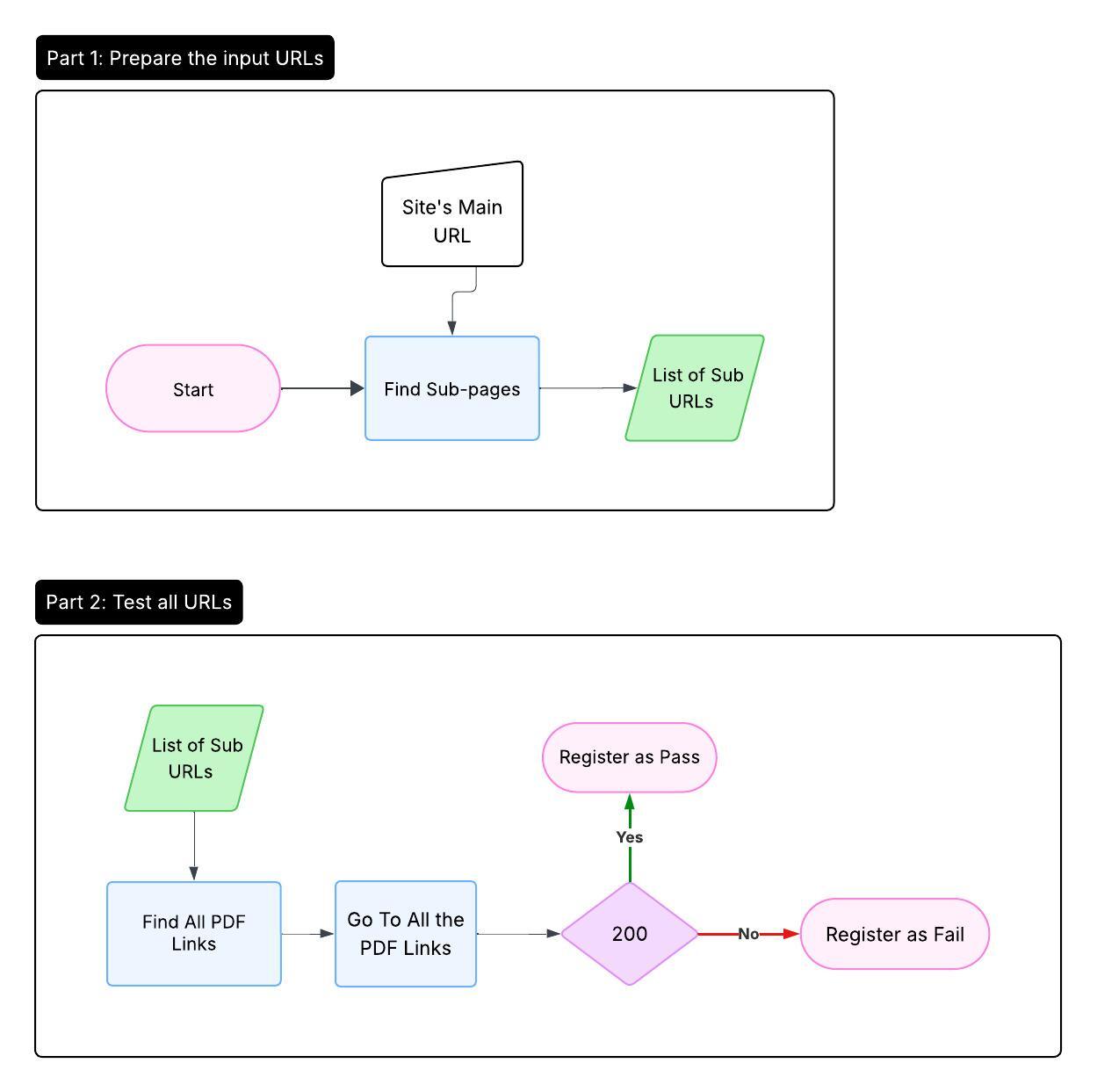As a developer or QA engineer, you know the frustration of discovering broken PDF links after a site update — especially when those links span multiple websites. I remember spending hours manually checking PDFs across five different sites, copying and pasting URLs into a browser, hoping I wouldn’t miss any. Each time a site updated, the tedious routine repeated itself, eating into time better spent building new features.
Frustrated by this inefficiency, I decided there had to be a better way. What if I could automate the whole process, running tests that checked every PDF link across all sites — reliably, consistently, and with zero manual effort?
In this article, I’ll walk you through how I built an automated PDF link testing solution using Python’s pytest, Playwright for browser automation, and GitLab CI/CD for continuous integration. To make it scalable and easy to maintain, I placed all the testing logic in a separate GitLab project and ran the tests on self-hosted runners, avoiding costly CI minute limits. This setup not only saved me hours of repetitive work but also gave my team quick feedback on link health — no more surprises in production.
If you’re juggling multiple sites or just want a practical example of integrating automated tests in your CI pipelines, this guide is for you.
Tools and Technology Stack
- Pytest: Python’s robust testing framework to write flexible tests.
- Playwright: Browser automation library for simulating user actions and checking PDFs.
- GitLab CI/CD: For running tests automatically in pipelines.
- Self-hosted GitLab Runners: Dedicated machines under my control to execute CI jobs without usage limits.
- Text files with URLs: Easy-to-edit files storing site-specific PDF URLs.
The Challenge
I manage 5+ sites, each with a large list of PDF URLs. I needed a way to:
- Run link tests against any site dynamically without manual file copying.
- Keep the test code and config separate from each site’s repository for easier maintenance.
- Avoid limitations or costs associated with shared GitLab CI minutes.
- Provide a simple way for team members to run tests without complex setup.
Solution Overview

1. Centralized Test Repository
I created a dedicated GitLab project containing all test code, URL lists, and CI configurations. This acts as a single source of truth for testing across sites.
2. Dynamic URL Loading
Using pytest’s CLI options and hooks, the tests load URLs from a file passed as a parameter, so one test script can run against any site by simply changing the URL list.
3. GitLab CI Jobs per Site
The .gitlab-ci.yml defines jobs for each site, passing the appropriate URL file as a test argument.
4. Self-Hosted Runners
To avoid consuming limited GitLab shared runner minutes, I installed self-hosted GitLab runners that execute these jobs on my own servers, giving me full control and no time limits.

Implementation Details
Parametrizing URLs in Pytest
In conftest.py, I added the following:
import pytest
import os
def pytest_addoption(parser):
parser.addoption(
"--urlfile",
action="store",
default="test_urls.txt",
help="Path to the file containing URLs to test"
)
def pytest_generate_tests(metafunc):
if "url" in metafunc.fixturenames:
urlfile = metafunc.config.getoption("urlfile")
if not os.path.exists(urlfile):
pytest.fail(f"URL file '{urlfile}' does not exist")
with open(urlfile) as f:
urls = [line.strip() for line in f if line.strip()]
if not urls:
pytest.skip(f"No URLs found in {urlfile}")
metafunc.parametrize("url", urls)
Example Test Function
def test_pdf_links(url):
# Playwright logic to verify PDF links would go here
assert url.startswith("https://"), f"Invalid URL: {url}"
GitLab CI Configuration
stages:
- test
test_siteA:
tags:
- self-hosted
stage: test
script:
- pip install -r requirements.txt
- python -m playwright install chromium
- pytest -s tests/test_pdf_links.py --urlfile=test_siteA_urls.txt --junitxml=report_siteA.xml
artifacts:
reports:
junit: report_siteA.xml
paths:
- report_siteA.xml
test_siteB:
tags:
- self-hosted
stage: test
script:
- pip install -r requirements.txt
- python -m playwright install chromium
- pytest -s tests/test_pdf_links.py --urlfile=test_siteB_urls.txt --junitxml=report_siteB.xml
artifacts:
reports:
junit: report_siteB.xml
paths:
- report_siteB.xml
Using Self-Hosted Runners
I registered a runner on my own infrastructure with the tag self-hosted. This allows GitLab to assign these test jobs to my machines, bypassing shared runner limits and enabling a stable, configurable environment.
Benefits of This Approach
- Centralized management: One repo holds all test logic and URLs, simplifying updates and adding new sites.
- Flexible and scalable: New sites require only a URL file and a CI job.
- Cost control: Self-hosted runners eliminate CI minute costs and give full control.
- Accessible to team: Anyone with repo access can trigger tests without setup hassle.
- Reliable and repeatable: Tests run consistently in a clean, isolated environment.


